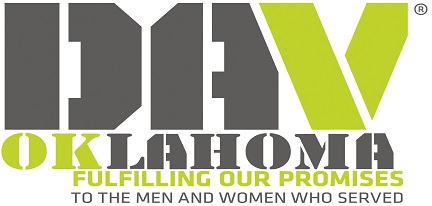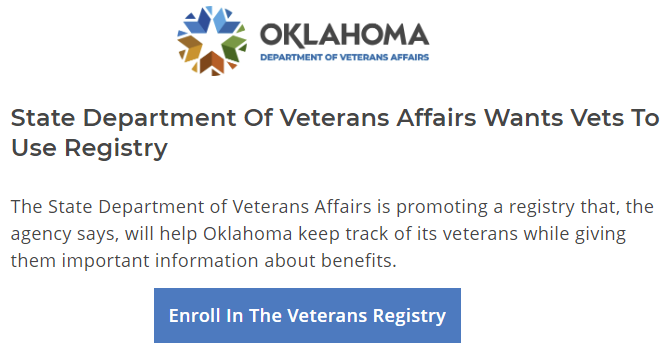NGAUS strongly supports S.143, the Military Spouse Job Continuity Act, introduced on January 12th by Senator Robert Casey of Pennsylvania. This legislation would offer a tax credit up to $500 to any military spouse who requires a renewal or transfer of a professional license due to a government-ordered move across state lines (PCS order). The tax credit would only apply to administrative fees paid to licensing boards or certificate-granting institutions. Additionally, eligible spouses are those who are married to a member of the Armed Forces at the time the member moves to another State under a PCS order and the spouse moves with the member
VA Blue Water claims update:
The Blue Water Navy Vietnam Veterans Act of 2017 is a bill to restore the presumption of exposure to Agent Orange by veterans who served in the harbors, bays and territorial seas of Vietnam. The bill was introduced on 5 JAN by Rep. David Valadao (R-CA) and co-sponsored by Rep. Tim Walz (D-MN) Joseph Courtney (D-CT) Elise Stefanik (R-NY), Dennis Ross (R-FL) and Joe Lobiono (R-NJ). The bill picked up an additional 100 co-sponsors in less than a week. HR 299 would correct a policy by the Veteran’s Affairs implemented in 2002 that striped veterans of the presumption of exposure as stipulated in the Agent Orange Act of 1991. The action was based on the interpretation of the phrase that service in the Republic of Vietnam applies only to those who served in the landmass of Vietnam. The opinion ignored that national sovereignty extended to the territorial seas.
Call to Action Please click on the link at the bottom of CMDR Riley’s Letter
On January 19, 2017, Rep. Gus Bilirakis (FL) introduced H.R. 303, the Retired Pay Restoration Act. This bill would end the unfair policy of forcing many military longevity retirees to forfeit some of their retired pay in order to receive equal amounts of disability compensation from the Department of Veterans Affairs (VA). The effect of this policy means military retirees are paying for their own disability with their military retired pay. This unfair policy has adversely impacted disabled veterans and their families for more than a century, but was partially repealed by Congress in 2004. Under current law disabled veterans with 20-plus years of active military service who are also in receipt of a VA disability determination of 50 percent or higher may retain both military retirement pay and their VA compensation.
In line with DAV resolution 110, adopted at our most recent National Convention assembled in Atlanta, Georgia, July 31-August 3, 2016, we support the Retired Pay Restoration Act. H.R. 303 would end the longstanding and unfair practice of the government’s withholding of military longevity retired pay in exchange for VA disability compensation, regardless of disability rating. DAV believes what is unfair for a veteran rated 50 percent disabled or higher by the VA is equally unfair for a disabled veteran rated 40 percent disabled or lower. Disabled military longevity retirees should not be unfairly penalized by the government for any reason.
This legislation was referred to the House Committee on Armed Services in addition to the Committee on Veterans’ Affairs. Please use the prepared email, or draft your own message, to request that your Representative support this important bill and ask that it be brought to the floor for a vote and passed as soon as possible.
Thank you for all that you do for veterans and their families. We need your grassroots action to gain Congressional enactment of this important legislation.
Click the link below to log in and send your message:
https://www.votervoice.net/BroadcastLinks/dUo42_HY2wFa4k5UovZRjg
Vet toxic exposure Lejeune update:
The Department of Veterans Affairs (VA) has published regulations to establish presumptions for the service connection of eight diseases associated with exposure to contaminants in the water supply at Camp Lejeune, N.C. The presumption of service connection (SC) applies to active duty, reserve and National Guard members who served at Camp Lejeune for a minimum of 30 days (cumulative) between August 1, 1953 and December 31, 1987, and are diagnosed with any of the following conditions:
• Adult leukemia
• Aplastic anemia and other myelodysplastic syndromes
• Bladder, kidney & liver cancer
• Multiple myeloma
• •Non-hodgkin’s lymphoma
• Parkinson’s disease
Exchange Online Shopping Update:
The Department of Defense has made a policy change, effective next November,
to allow 16 million honorably discharged veterans to shop online for discounted military exchange products. Peter K. Levine, acting undersecretary of defense for personnel and readiness, signed a memorandum 11 JAN announcing the benefit expansion, effective Veterans’ Day 11 NOV, and giving Congress the required 30 days’ notice before actions begin to implement the plan. Months of preparation are needed to make e-shopping portals more robust and
to allow the Defense Manpower Data Center (DMDC) time to create software for verifying veterans’ status using Department of Veterans Affairs records.
Concurrent receipt status:
Career service members earn their retired pay by service alone and those unfortunate enough to suffer a service caused disability in the process should have any VA disability compensation from the VA added to, not subtracted from, their service-earned military retired pay. The proposition made by the Congressional Budget Office (CBO) to remove the Concurrent Retirement and Disability Pay (CRDP) provision would strip previously earned retirement benefits from hundreds of thousands of retired service members. Veterans are widely regarded as disadvantaged
when looking for post-service employment opportunities, due largely to the military culture and combat related training. Bean counters at the Congressional Budget Office have come up with a
billion-dollar idea to reduce the deficit. Unfortunately, it’s a billion-dollar bad idea, one that could harm nearly 600,000 service members in the process. The CBO, a nonpartisan budget analysis arm within the legislative branch, has pointed out that Congress could save a whopping $139 billion from 2018 to 2026 by doing away with “concurrent receipt.” This practice allows veterans to collect both retirement pay and disability pay at the same time.
Our elected Congressional representatives continue to receive private medical benefits, compensation and other benefits. Let’s ask them why they don’t forfeit some of their private benefits and take government health care, etc. How much would this safe the government?
Defense officials approve expanded veterans online shopping benefit:
Honorably discharged veterans could be able to shop online at military exchange websites as early as Veterans Day, barring any objections from Congress. The change in Defense Department policy would open up online exchange shopping privileges but it won’t apply to shopping at brick-and-mortar exchange stores. A defense official confirmed a letter announcing the change was signed Wednesday by Peter Levine, acting undersecretary of defense for personnel and readiness. Copies were sent to lawmakers on four House and Senate committees, and if no objections are raised within 30 days, officials with Army and Air Force Exchange Service and Navy Exchange Service Command expect to be able to implement the new benefit by mid-November
New regulation decreases cost of outpatient medication:
The Department of Veterans Affairs (VA) is amending its regulation on copayments for Veterans’ outpatient medications for non-service connected conditions. VA currently charges non-exempt Veterans either $8 or $9 for each 30-day or less supply of outpatient medication, and under current regulations, a calculation based on the medication of the Medical Consumer Price Index (CPI-P) would be used to determine the copayment amount in future years.
This new regulation eliminates the formula used to calculate future rate increases and establishes three classes of outpatient medications identified as Tier 1, Preferred Generics; Tier 2, Non-Preferred Generics including over-the-counter medications; and Tier 3, Brand Name. Copayment amounts for each tier would be fixed and vary depending upon the class of outpatient medication in the tier.
These copayment amounts will be effective February 27, 2017:
$5 for a 30-day or less supply – Tier 1 outpatient medication
$8 for a 30-day or less supply – Tier 2 outpatient medication
$11 for a 30-day or less supply – Tier 3 outpatient medication
VA’s rule establishes a presumption of service connection for diseases associated with exposure to contaminants in the water supply at Camp Lejeune
On January 13, 2017 the VA established the following:
The presumption of service connection applies to active duty, reserve and National Guard members who served at Camp Lejeune for a minimum of 30 days (cumulative) between August 1, 1953 and December 31, 1987, and are diagnosed with any of the following conditions:
• adult leukemia
• aplastic anemia and other myelodysplastic syndromes
• bladder cancer
• kidney cancer
• liver cancer
• multiple myeloma
• non-Hodgkin’s lymphoma
• Parkinson’s disease
Whether to expand the list of diseases that are presumed to be linked to Agent Orange.
In the past, the VA has found enough evidence to link 14 health conditions, including various cancers, to Agent Orange exposure. In March, a federal panel of scientific experts said there is now evidence to suggest that Agent Orange exposure may be linked to bladder cancer and hypothyroidism. It also confirmed, as previous experts have said, that there is some evidence of an association with hypertension, stroke and various neurological ailments similar to Parkinson’s Disease. Since then, a VA-led study has found stronger evidence to link hypertension, more
commonly known as high blood pressure, to Agent Orange exposure. But high blood pressure is common as people age, so compensating veterans for the condition could be expensive




